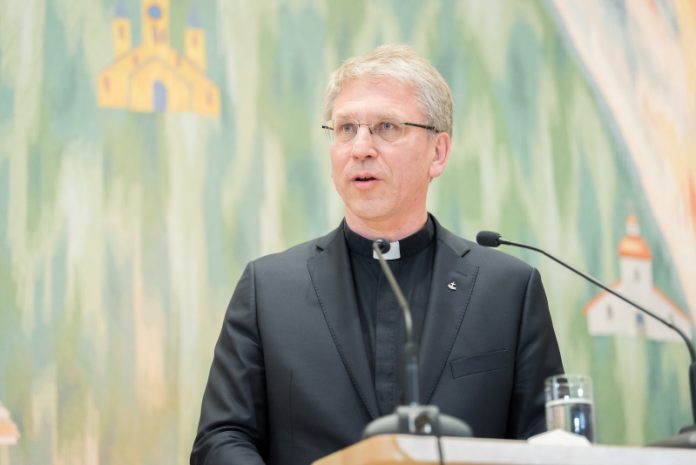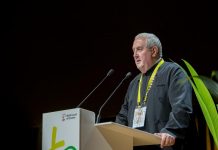On 31 March at the Hollywood United Methodist Church, in a sermon entitled “The Two Brothers,” World Council of Churches (WCC) general secretary Rev. Dr Olav Fykse Tveit reflected on the biblical parable of the prodigal son, among the most shared and well-known stories in the Bible.
“We all like good stories,” Tveit said. “Some of the best are presented to the world from this very town.”
Biblical stories and the stories of the Christian tradition shape our lives, Tveit reflected. “Our Bible is in fact a unique collection of stories,” he said. “Some of them we like, some of them we don’t.”
Tveit noted that Jesus told the story of the prodigal son to the scribes and the pharisees in response to the conflict and discourse among them. “It is a justification of the inclusive practice of Jesus, his eating and drinking with the others, the sinners,” said Tveit. “Just as the gospel story of the two sons perplexed and provoked people then, so it still can and does lead to critical self-reflection, questioning of our values, and ultimately to transformation.”
The world we live in today is definitely in need of words and stories that can brings us together, continued Tveit, who shared that the theme for the WCC 11th Assembly in 2021 in Karlsruhe, Germany, will be “Christ’s love moves the world to reconciliation and unity.”
Tveit explained the rationale behind the theme: “Because we believe something else is possible. Because we believe in God’s love. Just as the gospel story of the two sons perplexed and provoked people then, so it still can and does lead to critical self-reflection, questioning of our values, and ultimately to transformation,” he said.
“Jesus portrays some of the miseries and tragedies we can find ourselves in, and also the prejudices and other attitudes that exclude us,” he said. “We have no other mandate as church than to follow the example of the generous father, offering grace for free.”
Nobody should be excluded, concluded Tveit. “Everybody, everybody has a place at the table. Our human relationships are never divided because of generosity, openness, gentleness, grace. That is what it means when we say we are united in Christ’s love, not because we all agree, but because we are all loved.”
World Council of Churches, oikoumene.org















